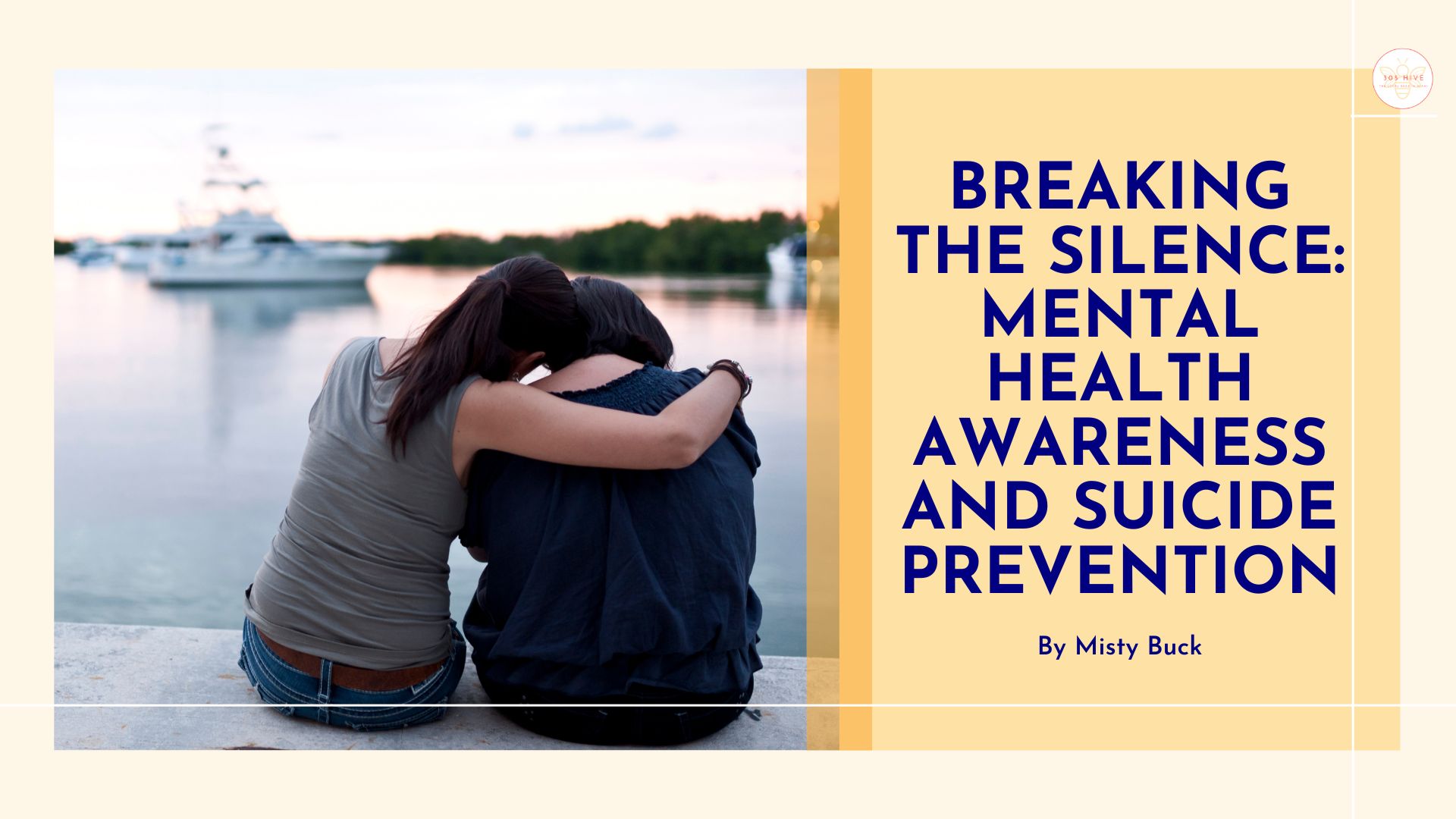Trigger Warning (TW): This article contains content about mental health and suicide. If you are currently struggling with suicidal thoughts, seek immediate professional help. Call or text The Suicide & Crisis Lifeline at 988. If you are in immediate danger or experiencing an emergency, call 911.
It’s a call you never want to receive and a story you never want to read. Someone you know died by suicide. I received one of those calls just this month. Out of respect for the family, I will keep the details to myself, but it reminded me once more about how widespread this epidemic really is. The reality is that mental illness and mental health issues are often suffered by the individual in silence so there are many more people suffering in their day-to-day lives than we realize. It’s why the consequences often take us by surprise.
September is Suicide Prevention Month, but one month is not enough to resolve a year-long problem that we can no longer ignore. Recent statistics by the CDC show that suicide is the number two leading cause of death among teens and young adults. Furthermore, in the United States in 2021, 48,183 people died by suicide, which is one death every 11 minutes. Overall, the number of deaths by suicide increased 2.6% from 2021 to 2022.
This is a very real problem that we can no longer afford to stigmatize or remain hush-hush about. It’s a highly sensitive subject and one that is admittedly difficult and can be uncomfortable to talk about, but it’s a conversation that we must have.
Becoming the Resource that I Needed
Personally, I have battled through depression and anxiety. It is a journey that I speak about freely, not because it’s easy, but because I hope that it gives others permission to validate their experiences. Although I run a successful digital marketing agency, I also have a deep passion for helping others by advocating for mental health. I focus mainly on serving teens and athletes, but I recognize that this is a message for anyone and everyone.
I’ve candidly spoken about my story and experiences in my book, Athlete Mental Health Playbook, on podcasts, on my blog, and during speaking engagements. I can’t worry that someone might think I’m “weak” or “crazy.” That’s their limitation. We’re all humans, not robots, which means we have feelings, and we can’t escape adversity. My hope is that if I can talk about my struggles, maybe someone else might feel like they can too.
Each of our lives is woven with experiences and perceptions that drive who we are and how we experience life. Who am I to judge what yours or anyone else’s looks like? The goal is to validate, listen, and heal by providing safe spaces free from judgment. The internal pain, confusion, guilt, and self-judgment are more than enough to occupy our worries; we need a place where we feel comfortable and supported when we are at our most vulnerable.
I feel a duty to be the resource I needed when I was struggling the most. I’m not a licensed mental health professional and so while there is only so much I can do, I will do what I can even if it’s helping someone find the right help. I also often speak with different groups on this very difficult subject.
Community Advocacy is Needed Now More Than Ever
Earlier this month, I participated in a 5K for a foundation called Kennedy’s Kids, which was started to help prevent teen suicide after a young teen took her life last year. The foundation was founded by her parents, loved ones, and friends. Their heartbreak is unimaginable, but they somehow found the courage to come together to share their story, and also take proactive steps in the community to try to prevent another family from experiencing a similar tragedy through providing education and resources.
We need more events, and more safe spaces, where we talk openly and candidly about mental health, and show community support. Oftentimes the toughest thing for someone suffering to do will be to ask for help so let’s make it easier for them to do so. Let’s normalize the conversation, let’s give them a place to be validated and heard, and let’s help those suffering feel less isolated.
Signs, Symptoms, and Steps
Again, I’m not a medical professional, but there are some common signs and symptoms that might indicate that someone is struggling with mental health or suicidal thoughts.
Some of these include:
- Extreme mood swings
- Isolation or not doing things they used to enjoy
- Appetite changes
- Loss of motivation
- Lack of energy
- Sleeping too much or too little
- Saying goodbye to family and friends
- Giving away important possessions
- Talking about being a burden
- Speaking about how they no longer recognize themselves, feel trapped, or hopeless
- Drawing, writing, or talking about death
- Frequent complaints of stomachaches, headaches or achiness (potential physical symptoms associated with mental health issues)
Ways to get help:
- If you’re suffering, take the courageous step of asking for help. It’s never too late. There are always, always options and solutions. You are not a burden. Don’t ever give up on yourself. Turn to a trusted person in your life, and if they can’t help support you, go to someone else who can and will. Keep asking until you get help because you deserve it. You can open up the conversation with something as simple as saying, “I’m having a hard time lately, can we talk?” It might be the most courageous step you ever take, but it will also be the most rewarding.
- If you think someone you love is suffering, create a safe space for them to talk to you. Ask open-ended questions instead of yes or no questions. For example, instead of “Are you okay” to which someone can easily reply “Yes or no,” try opening up the space for them. You might want to say something like, “Seems like you have a lot going on. Tell me about how that’s going for you.” You can also let the person know that you don’t have to offer advice or solutions, you can just listen. You may also want to invite them to an activity because some people might be intimidated by direct conversation alone. Additionally, don’t be afraid to use the word “suicide” in your conversation because by saying that word, you’re giving them permission to talk about that specifically if they are open to it.
Resources:
- Call or text 988 (National Suicide Prevention Lifeline)
- Text “NAMI” to 741741 for 24/7, confidential, free crisis counseling
- In case of an emergency, dial 911
- Additional crisis resources can be found on the NAMI website



